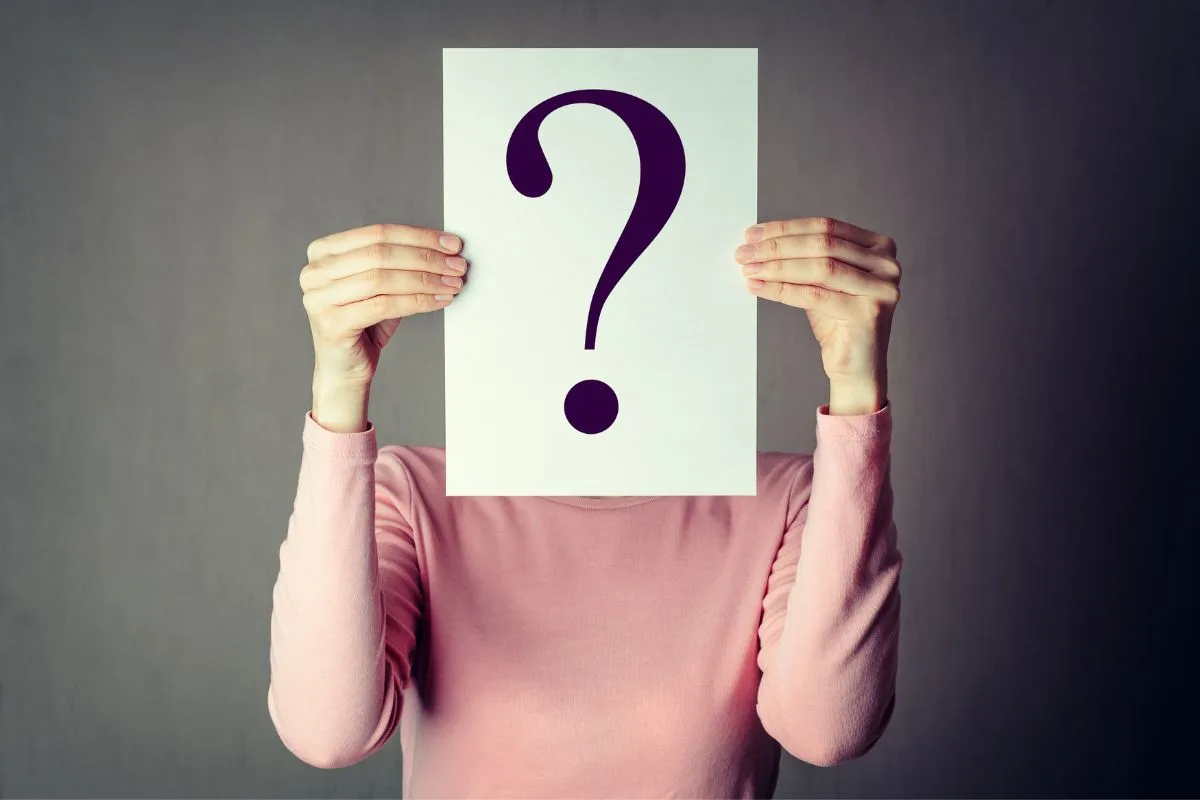In society, there are many instances where anonymity is important – particularly in the modern age where the internet and social media have made us more exposed than ever.

Anonymity can be important for maintaining a lack of bias, keeping privacy, and protecting vulnerable people from harm – not to mention ensuring things remain fair and just.
But what are some situations where anonymity is absolutely essential, and what are the associated benefits?
What Are The Benefits Of Anonymity?
Depending on the specifics of the situation, there are numerous benefits to the maintenance of anonymity.
Privacy
Firstly, privacy is of course the most notable benefit, and is a luxury afforded to few people in the modern age.
However, the maintenance of anonymity is important to cultivating personal privacy – especially in situations regarding healthcare, legal issues, and any number of other sensitive matters.
Safety
Safety can also be a benefit of anonymity (see also “Independent Teens: 10 Safety Tips To Protect Yourself“), particularly in cases of a legal nature, wherein there might be a victim – or indeed a potential suspect – who needs to be protected until all of the facts of the investigation become clear.
The absence of anonymity could result in coercion, bullying, violence, or even death – not to mention the collapse of sensitive legal cases where the careful curation and management of evidence means everything.
Fairness
Maintaining fairness is also a benefit of anonymity, and one that has benefits in numerous fields and situations.
This could be with regards to competitions, promotions, business deals, or indeed juries in courts of law.
Breaching confidentiality could result in people being treated unfairly, or indeed people have an advantage over someone else.
Accuracy
To ensure the accuracy of both public opinions and information, there needs to be anonymity, otherwise people might think twice about sharing honest facts with survey takers, officials, and other situations.
By ensuring anonymity, people feel more comfortable coming forward, taking risks, and sharing their experiences – all of which can be beneficial on a wider level.
When Is Anonymity Essential?

There are numerous situations in which anonymity is an essential part of the operation, ranging from issues of a personal nature, to delicate legal situations where the balance of justice rests on sensitivity and privacy.
1. Medical Confidentiality
This is perhaps what most people think about when they think of anonymity.
Medical doctors are bound by doctor-patient confidentiality laws, meaning that when something is discussed by a doctor, be it personal or medical, they are not allowed to divulge that information with any member of the public, or a legal body (without proper authorization).
This also means that, when studies are conducted, the subjects also need to remain nameless, and no information regarding them or their personal lives can be shared publicly with unauthorized people.
2. Online Privacy
Thanks to the internet and social media in particular, we are more exposed and vulnerable than ever before, and maintaining a sense of privacy is more important and tricky than ever.
Online privacy has many different facets, all of them placing continued anonymity of users as a priority – both for data protection, personal safety, and financial security.
If someone was to get your personal information from an insecure online source, then they could potentially clear out your bank account, steal your identity, or even find out where you live and do God knows what to you and your property.
This is why the limitation of online activity, and the maintenance of privacy is paramount to all users of the internet.
3. Police Procedures
In the early days of an investigation, anonymity needs to be in place to protect the lives and wellbeing of both the victims of crime, any potential suspects, and those linked to the case.
Not doing so could put people at risk of violence, threats, bullying, or harassment (see also “How To Overcome Bullying + Helps Younger Victims“), and could mean that evidence gets destroyed, suspects get away without justice, and court proceedings can not go ahead as intended.
This is especially true if the crime is of a sensitive nature – such as sex crimes and violent crimes – wherein there is a distinct personal risk for the people involved in the case.
4. Jury Duty
Likewise, the identity of the jury during court proceedings also needs to be kept a closely guarded secret. Otherwise they could be threatened, coerced, hurt, or even killed to change their verdict, or retract it entirely.
The same goes for witnesses who are vulnerable, who might be subject to abuse and attacks by those close to the accused.
5. Mental Health Therapy
In situations regarding mental health and the subsequent therapy, what goes on between patient and therapist has to remain anonymous and private.
This means that therapists shouldn’t name names when mentioning patients – be it to colleagues, superiors, or even their friends and family.
What is said in the room should stay in the room. However, in certain countries (such as the UK), crimes can be reported to the police if a patient admits to them in the room – or indeed if what they say gives the therapist cause for concern regarding the wellbeing of a child, a loved one, or members of the general public.
6. Internal Affairs Investigations
If there are internal investigations – be them in the police force, or within any industry – then the investigations into personnel need to be done anonymously, and without causing undo trouble or distress to the individual.
Giving information to the group as a whole could put people in danger, or turn the opinions of their peers and superiors against them – thus ruining their working/personal lives if they are not the ones responsible for whatever is being investigated.
7. Survey Taking
Information taken during surveys should also be anonymous, be it in a workplace opinion survey, or with one featuring members of the general public.
There are many reasons for this, but the main ones are for public safety – especially with general surveys taking where personal information could be given – and ensuring that people get fairly treated and not penalized in the workplace.
Anything other could be catastrophic for the individual, and depending on the situation, could result in crimes being committed either against their person or their property.
8. Moderating Exams
If school, college, or university work is being moderated by external examiners, then they need to remain anonymous – both from a sense of fairness, and to stop people from threatening, bribing, or coercing the moderators to improve student grades.
This is important for maintaining fairness in education, and to ensure that the principles and integrity of education are continually maintained – thus giving everyone an equal chance to prosper.
Not doing so could result in cheating, moderators being threatened by angry students and parents, or indeed breaches in privacy, wherein scores of students could be shared unintentionally.
9. Protecting Children
Any situation involving children should be treated with care, privacy, and above all else, anonymity. This is because they are vulnerable members of society, and as such are protected under the law.
If a crime is committed against a child, then they cannot be named or photographed on television or in the news.
The same goes for anything personal involving schools, medical issues, or even things to do with competitions and similar situations.
This is because, if these things were breached, they could put the children at risk of crime, abuse, kidnapping, or any other dangerous situation that no one – especially children – should be exposed to.
10. Personal Information
Personal information, both online or in person, should always be protected from general circulation.
This is perhaps especially pertinent online, and there have been numerous cases where companies have shared the information of their customers – selling them to the highest bidder, and allowing advertising agencies to target these individuals with ads, spam, and other unwanted messages.
Any information given online has to come with a promise that it will not be shared against the person’s will, although most online transactions and sign ins tend to come with an ‘agree’ box wherein the individual must state that they agree that the information can be shared under specific circumstances.
This could be with third party companies, for survey purposes, or any number of situations.
The rules circulating data protection are notably muddy and vague, and there have been countless situations where people’s information has been stolen, sold, or shared against their will.
Final Thoughts
And there we have it, everything you need to know about anonymity, and situations where the continuation of it is absolutely essential.
There are many instances within society where anonymity is not only used, but is essential to maintaining standards of health, safety, and privacy – especially in the modern world where the internet has made everything and everyone so open and vulnerable.
Luckily, there are so many measures in place to ensure that people not only get the help and support they need from the specific situation, but that their private business remains just that – private!
- Homeschooling In High School: Pros And Cons - February 24, 2024
- How Do I Withdraw My Child From School To Homeschool? - February 23, 2024
- How To Not Go Crazy Homeschooling Kids: A Guide For Frazzled Parents - February 22, 2024








